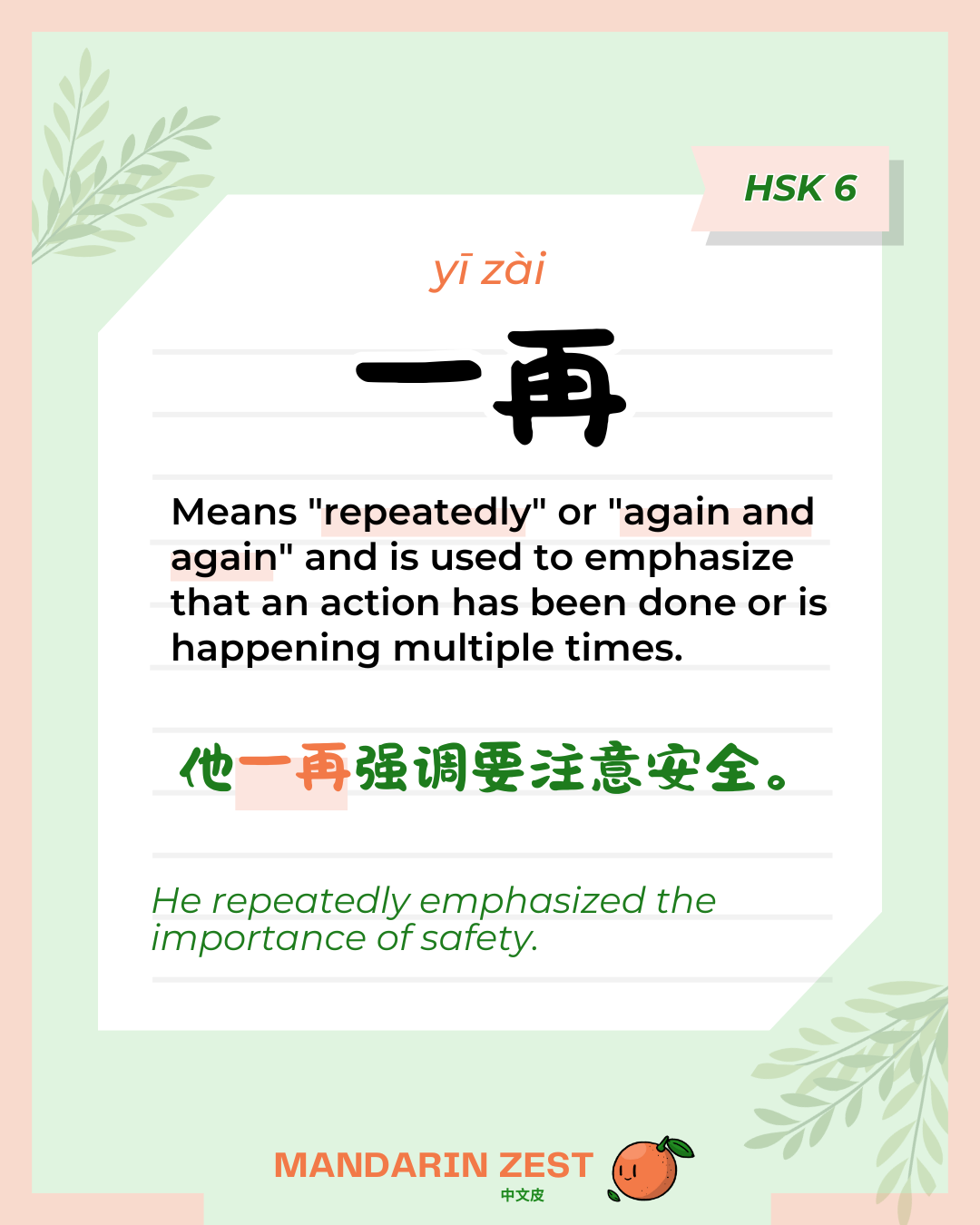The adverb 一再 (yīzài) means "repeatedly" or "again and again" and is used to emphasize that an action has been done or is happening multiple times. It’s commonly used in both spoken and written Chinese but is often paired with more formal, disyllabic verbs when directly modifying the predicate.
Structure:
Subject + 一再 + Verb
Sample Sentences
他一再请求老板给他一次机会,说明自己一定会改正错误。He repeatedly asked his boss to give him another chance, explaining that he would definitely correct his mistakes.
医生一再提醒病人按时吃药,不然病情可能会加重。The doctor repeatedly reminded the patient to take their medicine on time, or the condition might worsen.
父母一再告诉孩子,要学会独立思考,不要盲目跟风。Parents repeatedly tell their children to learn to think independently and not to follow the crowd blindly.
In a Text
昨天晚上,我们学校的舞台剧排练差点没完成。导演一再要求演员们投入更多的感情,但有些人总是无法集中注意力,导致排练一拖再拖。负责灯光的工作人员也一再调整灯光角度,希望能够营造出更好的效果。虽然过程有些混乱,但最终我们还是顺利完成了排练。导演一再夸奖大家的努力,说只要保持这个状态,演出一定会成功。虽然累,但每个人心里都充满了期待。
排练 (pái liàn): to rehearse
营造 (yíng zào): to create; to build (an atmosphere or environment)
夸奖 (kuā jiǎng): to praise; to compliment
Last night, our school’s stage play rehearsal was almost not completed. The director repeatedly asked the actors to put more emotion into their performance, but some people couldn’t stay focused, causing the rehearsal to drag on and on. The lighting staff also kept adjusting the angles, hoping to create better effects. Although the process was a bit chaotic, we finally finished the rehearsal successfully. The director repeatedly praised everyone’s efforts, saying that as long as we maintained this state, the performance would be a success. Although tired, everyone was filled with anticipation.






